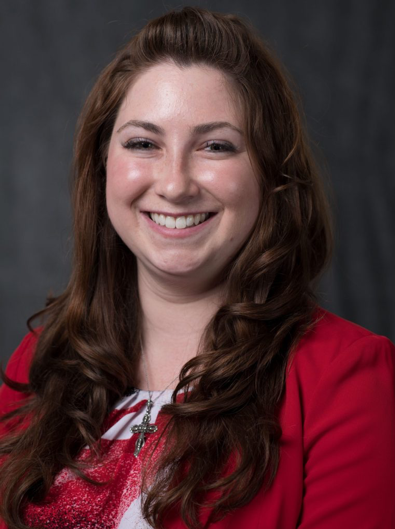From 2018-2019, DeHoratius, BBA ’17, MS ’21 worked at Temple’s Small Business Development Center (SBDC) as a graduate assistant and joined Temple’s SBDC as a business consultant in March 2020. She worked in the consulting field for the past few years but has extensive experience working in and with nonprofits, custom brokerage firms, market research facilities and financial institutions in departments such as organizational effectiveness, talent management, legal, compliance and risk.
What areas do you specialize in and what is your favorite aspect of working as a consultant?
Right now, I focus on businesses that are affected by COVID-19. My areas of specialty are largely marketing and communication. I love working as a consultant because every single client that we interact with has a unique business idea, a new approach to business. No day is the same, every client is unique. In my previous jobs, I didn’t have the same opportunities to innovate and to work with individuals on their new ideas. This job is incredibly dynamic, and there is always something new to work on, something new to learn.
What did you study in college? Do you need a college degree to start a business?
My bachelors are in international business with a concentration in entrepreneurship and human resource management. I have two master’s degrees from Temple University. One is in globalization and development communication. My second is in digital innovation in marketing.
A college degree is not a requirement to start a business. I work with a lot of entrepreneurs who have college degrees, and a lot who don’t. If you are interested in starting a business, it would be beneficial to seek out relevant learning opportunities. It is important that entrepreneurs continue to learn about their businesses and their industries, and that doesn’t have to be through a college degree or a formal class. It can be attending networking events, speaking with people in the industry, using online learning opportunities, and yes, formal education can be useful as well. For example, many entrepreneurs can utilize resources found through the Small Business Administration, sbdcnet.org or their local libraries.
What aspect of your work do you think makes the biggest impact?
A unique aspect of the SBDC is that due to our no-cost consulting we are able to help entrepreneurs at an earlier stage. Sometimes finances can be a deterrent from seeking assistance, but because we don’t charge for our services, we are able to assist entrepreneurs right from the start. I love working with an entrepreneur through all the stages of business development. It is so rewarding to begin working with a client who just has an idea, and to be able to work with them through the whole process of launching a successful business.
What do you think are the biggest challenges in starting a business today?
Right now, we have a lot of resources to help businesses survive and thrive in the era of COVID-19. The SBDC can help new entrepreneurs and owners of small businesses to learn how to shift their business models to adapt to the new normal of doing business in the current economic climate. Small businesses need to rethink how they will engage with their consumers. Consumers have had rapid changes in their expectations in the past year. There are a lot of businesses that have no meaningful web presence. Developing that web presence can be a significant factor in allowing them to not only retain their current customers but to also bring in new customers. The most consistent request I hear from clients is that they need assistance related to digital transformation, whereas before they relied more on their traditional tactics, which no longer work.
How do you feel COVID-19 impacts the role of Temple’s Small Business Development Center?
There has been a big increase in the number of people reaching out to us for help. We realized there was more need than ever for our services, and we’ve grown to accommodate this increase in need. We have expanded our staff and our offerings to be able to deal with new challenges that entrepreneurs are facing.
What are some common mistakes that entrepreneurs make when starting a business?
One of the most common mistakes is not doing any research on their business ideas, and not speaking with the people they want as their future customers. Some entrepreneurs invest a lot of time and money into their businesses before they have done enough research to know how to best allocate their resources. Entrepreneurs would be well served to verify that their offerings satisfy a need or want for their potential consumers. A little bit of research at the start can save you from a lot of hardships down the road.
What was the most unique business idea you have worked on?
My most unique client had a business involving radiopharmaceuticals/ therapeutics and diagnostics. She was looking into theragnostic, and drug discovery related to health and benefits. I had to do a lot of research into the field to be able to help her with everything she needed. One of my favorite aspects of this job is getting to work on new and innovative ideas that propel me to always continue learning.
Do you have any advice for aspiring entrepreneurs?
Talk to people! Talk to their network, family, friends. Look at your competitors and do research into your industry. Talk to people you want as your customers, and make sure that your service or product is addressing their needs or wants. Ask tons of questions, and don’t be afraid to reach out to new people and organizations for help. There are a ton of resources and groups, both online and offline, available, and excited to help entrepreneurs.
If you would like to set up a no-cost appointment with one of our business consultants, please sign up here.

